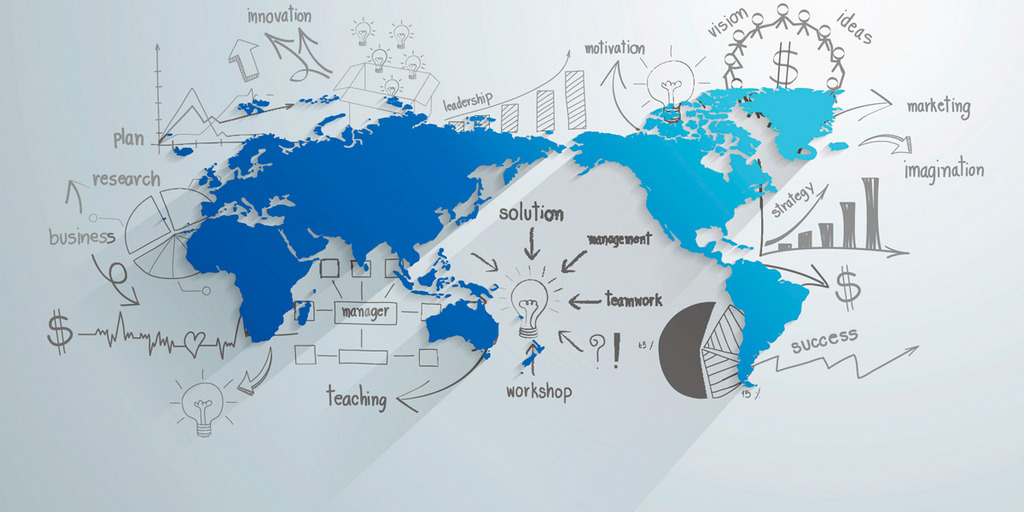By economic globalization we mean the increasing economic integration of countries and people. These interdependencies relate both to the exchange of production factors (labour, capital, technologies, knowledge) and of products (tangible goods and services, intermediate and final products, consumer and capital goods).
We take a fundamentally positive view of economic globalization: it has contributed worldwide to reducing poverty, increasing productivity and increasing economic growth. Economic growth improves people's material and immaterial well-being (e. g. life expectancy and educational attainment) and thus increases their development opportunities. At the same time, however, we also see the negative side effects of advancing globalization. In developed industrial countries such as Germany, for example, job and income opportunities are deteriorating, especially for low-skilled people.
The “Global Economic Dynamics” project aims to contribute to a better understanding of the drivers and effects of economic globalization and to recognize undesirable developments at an early stage in order to develop globalization in such a way that all people benefit from globalization gains.
To this end, we work with our project partners on scientific analyses that examine the economic dynamics and effects of globalization. A central publication is the biennial “Globalization Report”.
We disseminate the results of our research in print media, policy briefs and trade journals as well as online posts, videos and data visualizations and classic dialogue formats (roundtables, workshops, conferences and one-on-one meetings with experts from politics and business). The aim of this exchange is also to develop measures that develop economic globalization in such a way that as many citizens as possible benefit from the associated growth in prosperity.

My Life Graphic/Shutterstock Images
Understanding and Shaping Economic Globalization
The ever closer integration of countries increases the material prosperity of the participating economies. Within the individual countries, however, there are also persons and regions for which the advancing globalization has negative income effects. We want to contribute to a better understanding of the growth and distribution effects of economic globalization and to distribute the benefits of globalization in such a way that all members of society benefit from globalization.



